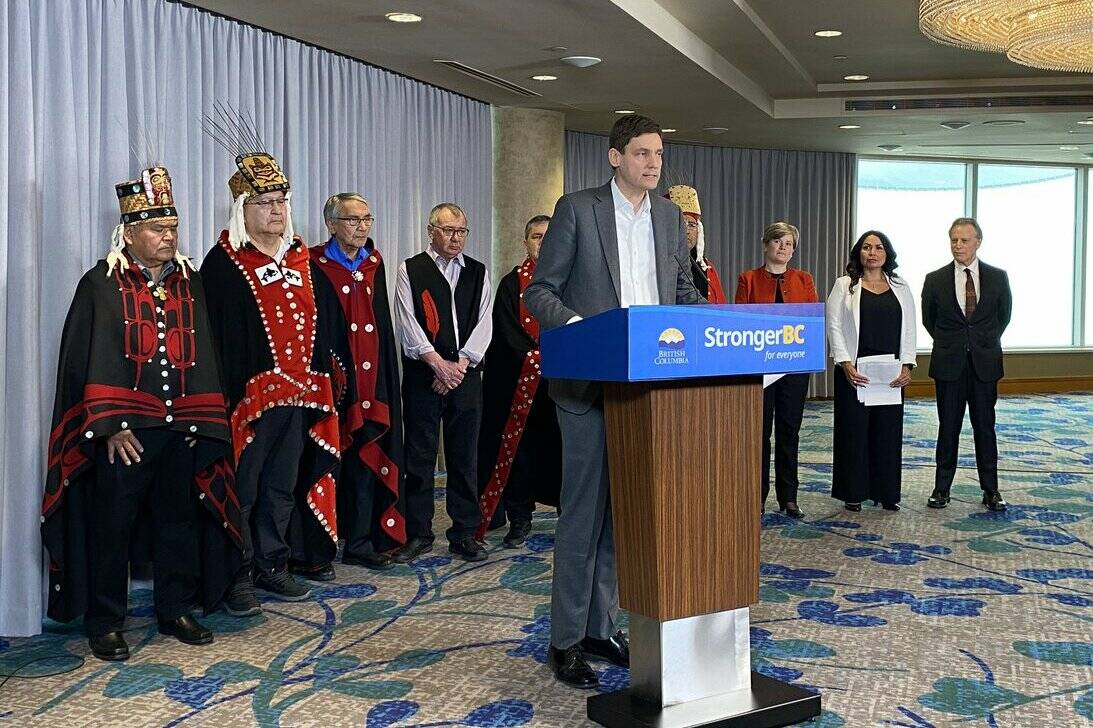B.C. has announced new stricter legislation around approving future oil and gas projects, which the premier says will help meet provincial climate targets.
In a two-pronged announcement Tuesday (March 14), Premier David Eby was joined by other ministers and members of Haisla First Nation to reveal the long-awaited approval of Cedar LNG.
A liquefied natural gas facility led by the Haisla Nation, Cedar LNG marks the largest First Nations majority-owned infrastructure project in Canada.
“The Haisla have been stewards of our lands and waters for generations and take our obligation to be stewards of the land and the living things on it with the utmost importance,” Chief Crystal Smith said.
“We also believe that bold measures are needed to fight climate change to protect the environment and our way of life, while helping to lift Indigenous communities out of poverty.”
The latest approval of Cedar LNG served as a building block in the province’s new energy action framework, which was also announced Tuesday.
READ MORE: B.C. approved LNG facility in Kitimat; to be majority owned by Haisla Nation
Under the new framework, all LNG facilities that haven’t yet received environmental assessment approval will be required to pass an emissions test. As well, stakeholders will need to have a credible plan to be net zero by 2030.
Government’s approval comes with 16 legally binding requirements for environmental protection. Some of which include: pic.twitter.com/osEtvAMQNr
— Jane Skrypnek (@janeskrypnek) March 14, 2023
The province will also be setting new regulatory emission caps for the industry and establishing a clean-energy and major projects office that will “fast track investment in clean energy and technology.”
The oil and gas industry is currently responsible for about 50 per cent of B.C.’s industrial emissions and 20 per cent of the province’s total emissions, according to the government.
Eby said Tuesday they haven’t yet determined how they will ensure companies actually meet requirements, but said the province plans to develop a model of consequences based off stakeholder engagement beginning in April.
Another part of the province’s plan to meet its climate goals is to task BC Hydro with accelerating the electrification of the oil and gas industry. Getting the right infrastructure to pipeline sites has been proving costly and time-consuming so far, with an estimated eight to nine years required from initiation to connection.
In January, Shell admitted it wouldn’t be able to use electricity to power the second phase of its LNG Canada project near Kitimat as it had originally said it would. The oil company told Reuters it plans to start building the expansion with natural gas-powered turbines, until BC Hydro is able to create hundreds of kilometres of new transmission lines to the site.
BC Hydro President and CEO Chris O’Riley said Tuesday that they welcome the creation of a new task force focused on electrification.

